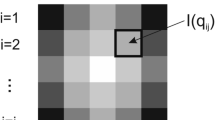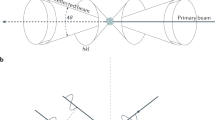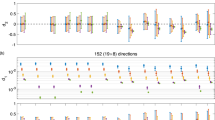Abstract
THE recent communication of Winteringham1 has focused attention on the two main difficulties which limit the value of the autoradiographic method in the study of the distribution of soluble radioisotopes of short half-life. These two problems, that of preparing the tissue without loss of the soluble tracer, and the enormous radiation intensities needed for a successful exposure, have been largely solved in our work; and in view of the general usefulness of the methods employed, a preliminary publication of their essential features may not be out of place.
This is a preview of subscription content, access via your institution
Access options
Subscribe to this journal
Receive 51 print issues and online access
$199.00 per year
only $3.90 per issue
Buy this article
- Purchase on Springer Link
- Instant access to full article PDF
Prices may be subject to local taxes which are calculated during checkout
Similar content being viewed by others
References
Winteringham, F. P. W., et al., Nature, 165, 149 (1950).
Gersh, I., Anat. Rec., 53, 309 (1932).
Boyd, G. A., and Levi, H., Science, 111, 58 (1950).
Author information
Authors and Affiliations
Rights and permissions
About this article
Cite this article
HARRIS, J., SLOANE, J. & KING, D. New Techniques in Autoradiography. Nature 166, 25–26 (1950). https://doi.org/10.1038/166025a0
Issue Date:
DOI: https://doi.org/10.1038/166025a0
This article is cited by
-
In Vitro Imaging Techniques in Neurodegenerative Diseases
Molecular Imaging and Biology (2007)
-
Verwendung gefriergetrockneter Kryostatschnitte für histologisehe und histochemische Untersuchungen
Histochemie (1970)
-
High-Resolution Autoradiography without Loss of Water-soluble Ions
Nature (1962)
-
Ver�nderungen des Nervensystems bei Vergiftung mit niedrigen Halogenkohlenwasserstoffen
Deutsche Zeitschrift f�r Nervenheilkunde (1960)
-
Autoradiography with plant tissue
The Botanical Review (1957)
Comments
By submitting a comment you agree to abide by our Terms and Community Guidelines. If you find something abusive or that does not comply with our terms or guidelines please flag it as inappropriate.



